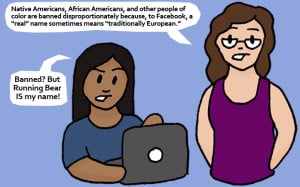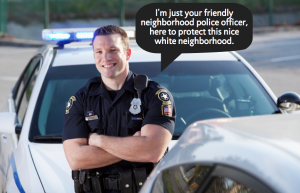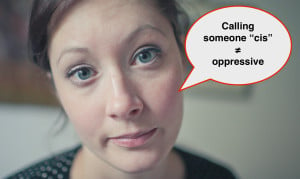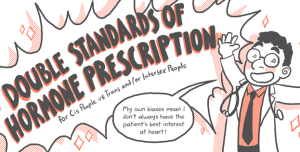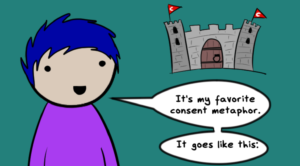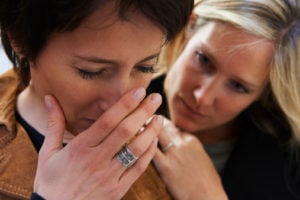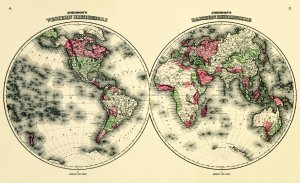
A world map on yellowed paper. Source: Serial Liars and Sleaze Bags
(This article was translated here in Polish.)
In social justice activism and feminist circles, there is a lack of discussion on Western privilege.
And this is becoming a huge problem for social justice activism.
A beautiful thing about living in the digital age is that activism is made more accessible because it can happen online. The Internet allows for people all over the world to exchange ideas, learn from one another, and demonstrate solidarity with others.
But the efficiency of this activism is limited if we don’t acknowledge the ways in which we have privilege over one another, as well as the ways in which Internet access is limited.
I often see discussions about Western privilege being dismissed or derailed.
Unsurprisingly, those who dismiss these discussions usually live in Western countries. Surprisingly, and perhaps sadly, many of the people who dismiss Western privilege or demand “proof” of it are social justice activists – the same people who would say that it’s wrong to demand that oppressed people prove their oppression.
Sometimes, people argue that Western privilege doesn’t exist because people in the West still experience oppression.
Here’s the thing: Experiencing a form of oppression does not erase the privileges you have.
Certainly, it might change the way in which you experience those privileges, but it doesn’t mean those privileges do not exist.
For example, male privilege exists, but it certainly does not mean that all males experience privilege in the same way. It will depend on their class, race, sexual orientation, (dis)abilities, and so on.
Men experience privilege based on their gender, but this definitely does not mean that men can’t experience oppression based on other aspects of their identity.
Similarly, the acknowledgement of Western privilege should not mean that nobody in the West experiences oppression.
It also doesn’t mean that all people in non-Western countries experience oppression in the same way.
For example, I live in South Africa, and I’m white. This alone means that I am way more privileged than most people in my country, and Western privilege does not affect me in the same way.
We should interrogate the ways various oppressions and privileges interact with Western privilege, not deny its existence entirely.
Through conversations with (mainly African) academics and activists, I’ve managed to compile a list of examples of Western privilege. Because of my own geographic location, this list is skewed to an African perspective. Please feel free to add more examples in the comments – especially if you feel that your continent, region, or country is underrepresented here!
1. People from other countries don’t enter your city, town, or country to try to “save” you.
2. People don’t go to your country to do voluntourism, a well-intended, but often dehumanizing and harmful practice.
3. Articles – even articles about neo-colonialism – are more likely to gain traction if written by someone based in a Western country, on a platform based in a Western country.
4. You’re able to assume that everybody knows your national traditions and cultural norms.
5. If you don’t know others’ national traditions, you won’t be dismissed as ignorant.
6. Your country is better represented in the media. This includes written media, television, and movies.
7. When your country is represented in the media, you get an informed, nuanced portrayal. As such, nobody reduces your country to Hollywood tropes. Your country is not reduced to a single story.
8. Movies about your country usually cast people from your country, rather than people from other countries who often do not look or sound like the people they’re meant to represent.
9. Novels about your continent, country, or geographical region don’t get the same book cover treatment.
10. Your country isn’t treated as “exotic” or fetishized by the rest of the world.
11. Your country isn’t treated as “backwards” by the rest of the world.
12. People don’t treat your entire continent as if it’s one monolithic country.
13. Most of your population is likely to have a strong, stable, relatively inexpensive connection to the Internet…
14. …which means that your country is better represented on social media and in digital activism.
15. “Global” platforms are more likely to acknowledge your national traditions and rituals, while those of other countries are ignored.
16. “Global” platforms will publicize your national tragedies and ignore or marginalize the tragedies that occur in other nations.
17. When a national tragedy occurs, you can expect people from all over the world to show solidarity with your nation.
18. It’s unlikely that tragedy and oppression in your country will be used as a derailment tactic to avoid discussing tragedies elsewhere.
19. Conversely, conversations about tragedies occurring in your country are unlikely to be derailed to draw attention to another country’s problems.
20. It’s relatively easy to get statistics and studies on certain things in your country. This may seem trivial, but consider how useful it is to have reliable statistics on, say, the job market, crime, income inequality, and accessibility to education.
21. You don’t have to learn all that much about other countries. People from other countries, however, have to learn about your country as a matter of survival.
22. If you move to another country after obtaining an educational qualification, you don’t have to start your education from scratch, as your Western qualification will be seen as adequate.
23. People will often consider your educational and career experience to be superior.
24. Your culture is not equated to your continent. I often see people attribute quotations as an “African proverb.” Proverbs belong to people, cultures, regions, and tribes – not entire continents. Similarly, people discuss “African tribal” music, dress, and culture.
25. Ironically, most privilege-checking lists are specific to Western countries (more often than not, the USA).
Although oppression is a world-wide issue, experiences of oppression differ in different geographic locations.
To effectively tackle near-universal oppressive systems, we need to have a united, global approach.
This requires acknowledging the fact that some of us have privilege over others, based on the country or region in which we reside.
Being able to recognize your privilege is the first step in fighting against oppression. Hopefully this list has given you a better idea about what Western privilege is and how it works.
If you experience Western privilege, I strongly encourage you to push back against it. Educate yourself. Educate others. Listen to the oppressed. Think critically about the preconceived notions you have about other countries, and whether those ideas are oppressive.
If you can think of any more examples of Western privilege, feel free to leave them in the comments!
Further Reading:
- Western Privilege Is a Thing, and I’m Not Sorry for Saying It
- Western Privilege Is…
- American Privilege
[do_widget id=”text-101″]
Sian Ferguson is a Contributing Writer at Everyday Feminism. She is a South African feminist currently studying toward a Bachelors of Social Science degree majoring in English Language and Literature and Gender Studies at the University of Cape Town. She has been featured as a guest writer on websites such as Women24 and Foxy Box, while also writing for her personal blog. In her spare time, she tweets excessively @sianfergs, reads about current affairs, and spends time with her gorgeous group of friends. Read her articles here.
Search our 3000+ articles!
Read our articles about:
Our online racial justice training
Used by hundreds of universities, non-profits, and businesses.
Click to learn more







